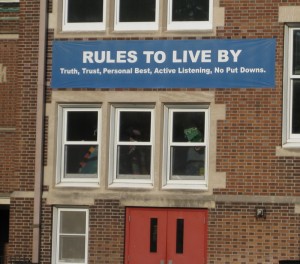How to force access to public records through freedom of information acts
Given the journalistic collapse of much of the commercial media, and especially given the disturbing absence of investigative journalism, it is increasingly up to bloggers and other citizen journalists to expose the wrong-doing of public entities. But what can you do if government agencies won’t hand over their public records? You force them to hand them over by making use of the Federal Freedom of Information Act (FOIA) or by making use of your state’s public records act. After all, the information possessed by government entities doesn’t belong to the government; it belongs to you and me. This principle that records should always be open and available to the public has been articulated by almost every prominent politician. Consider this quote:
Fundamental to our way of life is the belief that when information which properly belongs to the public is systematically withheld by those in power, the people soon become ignorant of their own affairs, distrustful of those who manage them, and---eventually-incapable of determining their own destinies.
Who said this? Richard M. Nixon. How does one learn how to make use of the various public records acts? One could go to the kind of seminar I recently attended. David Cuillier gave such a talk in St. Louis. Cuillier is the Chairman of the Freedom of Information Committee of the Society of Professional Journalists. He provides ongoing news and tips about FOI here and here. During his talk Cuillier offered quite a few resources for those wanting to force the production of such records. Most of those resources are contained in a pamphlet, titled “Unlocking the Power of Public Records.” Cuillier specifically invited those attending to freely publish this immensely helpful resource on the Internet. Thus, I am making it available here. Cuillier indicated that ¾ of journalists are generally not doing the work to force the production of information that could be valuable to their stories. He offered a long list of important stories based on public records. For instance, the Seattle Times reported that in 2003, 159 coaches were reprimanded or fired for sexual misconduct in one state, yet 98 of them were rehired in comparable positions. He also mentioned an immensely important story regarding toxins in drinking water written by Charles Duhigg at the NYT. Consider this excerpt:In the last five years alone, chemical factories, manufacturing plants and other workplaces have violated water pollution laws more than half a million times. The violations range from failing to report emissions to dumping toxins at concentrations regulators say might contribute to cancer, birth defects and other illnesses.
None of this could have been done without extensive use of public records. I’ll mention a few of the most important resources discussed by Cuillier. The site of IRE (Investigative Reporters and Editors) offers “great information” that is searchable. It also offers “tip-sheets,” which are handouts from the IRE conferences (“these alone are worth the cost of membership in IRE”). He also recommends the SPJ website, which is loaded with resources. PIPL is a “private site offering valuable information assisting the investigation of people (Cuillier is correct—I PIPL’ed myself and it did offer quite a bit of information). An unusual site Cullier mentioned is Government Attic. Cuillier describes this as a site created by an “eccentric guy who puts lots of FOIA records online.” Yet another site getting accolades from Cuillier is “OGIS,” “a great federal agency that helps requesters.” Open Government Guide offers links to guide you through the open records laws of each of the states. This resource is extremely impressive. Those from Missouri (my state) might also want to consider the Missouri Municipal League, which offer guidelines to Missouri municipalities (but these can also be helpful to those seeking information from municipalities. Cuillier explained that getting police department records is much more difficult today than it was several decades ago. Several veteran reporters in the room concurred. Cuillier explained “This is dangerous—we need to take back government from the secret police departments that are growing.” For much more information, view the attached pamphlet and visit the many websites linked above. Beware that there are many hurdles erected by many government entities (e.g., exorbitant copy fees for the records), but there are also many strategies for overcoming these hurdles.

